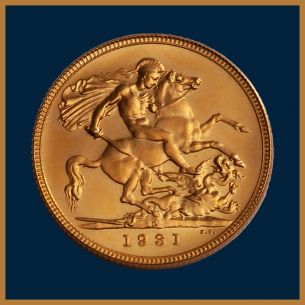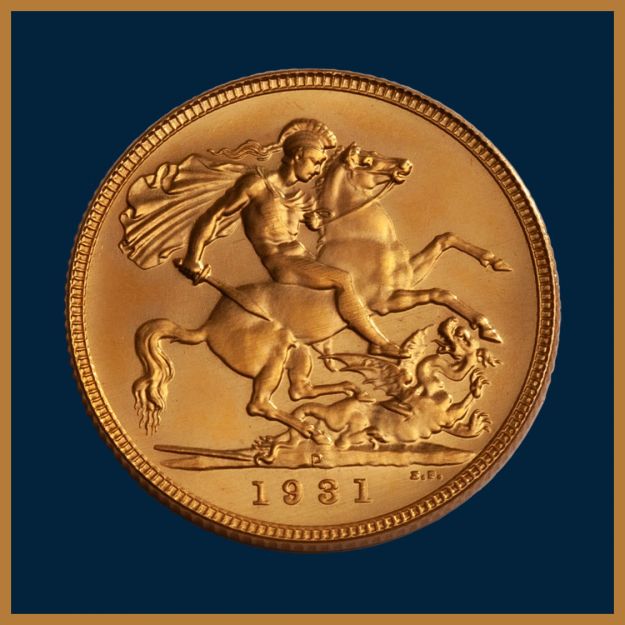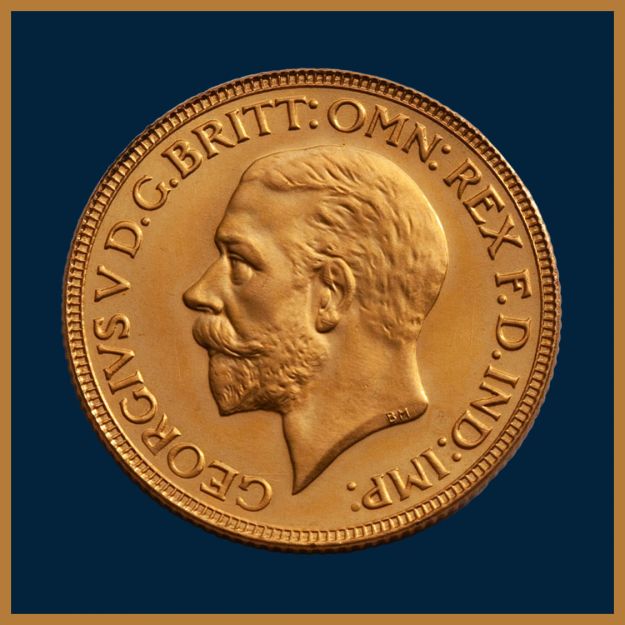1931 Perth Mint Proof Sovereign

The Perth Mint opened its doors on 20 June 1899 to support Western Australia's gold industry and struck circulating sovereigns every year until 1931 when the Perth Mint, and the rest of the Australia mints, ceased striking gold sovereigns.
Over thirty-three years of gold coining production, the Perth Mint struck Coins of Record of its sovereigns in only three years, 1899 (its opening year), 1901 and 1931 (final year of sovereign production).
We have looked at the numbers that are available to collectors in each of these years, 1899, 1901 and 1931 and have come up with a total buying pool of five sovereigns (four if you invoke quality), the availability of each year noted after the bullet point.
1899 Proof or Specimen Sovereign • 1
1901 Proof Sovereign • 2
1931 Proof Sovereign • 2 **
** While two examples are known, one is impaired through mishandling
The value of a coin is impacted by its original mintage and the number of examples available to collectors out in the market place. That is only logical. The more examples out there, the lower the value. A simple enactment of supply and demand.
The value placed on a coin will also be influenced by the number of 'similar' pieces that are available to collectors. Again its logical, and it is particularly applicable to those collectors that are not fussed by dates and simply crave a particular design.
We see this quite clearly in the Coins of Record struck at the Melbourne Mint during the Veiled Head era, 1893 to 1901. If you are not fussed by the year, a collector can opt for any of the dates, subject to availability of course, to obtain a Proof Sovereign or Half Sovereign featuring the Veiled Head design.
There are no such luxuries for collectors of Perth Mint Coins of Record. In the Australian rare coin market, the Gold 'Coins of Record' of the Perth Mint is the most difficult sector to buy into.

1931 Proof Sovereign
Perth Mint Coin of Record

1931 Proof Sovereign
Perth Mint Coin of Record
The Perth Mint is so exclusive in numbers, striking Coins of Record in only three years out of thirty-three, there are no easy options for collectors.
During the reign of George V (1911 to 1931), the Perth Mint only struck proofs in the final year, 1931. Two examples are known. This coin and one that has been severely impaired through mishandling.
The Perth Mint did not strike any proofs during King Edward VII's reign (1901 to 1910).
And there were only two years during the Veiled Head era where Coins of Record were struck, 1899 and 1901, and the whereabouts of the 1899 Proof Sovereign is unknown.
The gold Coins of Record of the Perth Mint have influence, power, and a world-wide reputation as the most difficult sector to buy into.
Each coin is historic. Many are unique. And for collectors, with the exception of the 1901 Proof Sovereign, they are irreplaceable.
On the very few occasions when a Perth Mint gold proof or specimen strike has become available, London 1903, Sydney 1985, Sydney 1989, London 2012 and Zurich 2021, history shows us that the market the world-over takes a keen interest.
1931 Perth Mint Proof Sovereign, a proof striking of the last sovereign struck at the Perth Mint.
Price: $195,000
John Agnew Collection circa 1931 • Agnew Family Collection sold to Spink & Son privately circa 1994 • Bentley Collection sold by Baldwins 27 September 2012 (lot 878)
That a coin of such power and influence in the Australian gold coin market was originally owned by John Agnew somehow seems just right for he too was powerful and influential.
A man of vision and remarkable knowledge of gold mining, Agnew was credited with making a major contribution to revitalise the Western Australian gold mining sector in the 1920s and 1930s and was Director of Consolidated Goldfields when he was gifted this coin.
A superb mint state and of the highest rarity, ex Bentley Collection 2012 (lot 878), this coin is unique for quality, the finest of two available to collectors, the other example impaired through mishandling.
© Copyright: Coinworks

